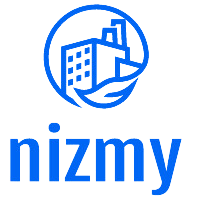Welcome to our comprehensive guide on unlocking the potential of Hyperledger coin. This article will serve as your ultimate resource for understanding what Hyperledger coin is, how it works, and how you can leverage its capabilities to drive innovation in your business. We will cover everything from the basics of Hyperledger technology to practical use cases and expert tips for maximizing its potential. So let’s dive in and unlock the full potential of Hyperledger coin!
What is Hyperledger coin?
Hyperledger coin is a blockchain-based platform developed by the Linux Foundation with the goal of enabling enterprises to build secure, decentralized applications. It is an open-source project that provides tools, frameworks, and libraries for creating and managing enterprise-scale blockchain networks. Hyperledger coin is not a cryptocurrency in the traditional sense, but rather a platform for building private, permissioned blockchains that can be used for various business use cases.
The origins of Hyperledger coin
The Hyperledger project was launched in 2016 by the Linux Foundation, a nonprofit organization dedicated to promoting open-source software development. It was initially conceived as a framework for developing blockchain solutions specifically for business use. Since then, it has grown into a vibrant and diverse community of developers, enterprises, and technology providers working together to advance the adoption of blockchain technology in various industries.
How does Hyperledger coin work?
Hyperledger coin utilizes a modular approach, which means that components such as consensus algorithms, smart contracts, and data storage can be swapped out depending on the needs of the application. This flexibility allows businesses to create customized blockchain networks that meet their specific requirements.
The role of smart contracts
Smart contracts are an integral part of the Hyperledger coin framework. They are self-executing programs that facilitate the automation and enforcement of transactions within the blockchain network. In Hyperledger coin, smart contracts are written in programming languages such as Go, Java, and JavaScript, making it easier for developers to create and deploy them.
The consensus mechanism
Hyperledger coin supports various consensus algorithms, including Practical Byzantine Fault Tolerance (PBFT), Proof of Authority (PoA), and Proof of Work (PoW). These algorithms determine how transactions are validated and added to the blockchain, ensuring that all network participants agree on the state of the ledger.
Data storage
Hyperledger coin uses a distributed ledger to store transaction data, which is shared across multiple nodes in the network. This distributed storage model ensures that the data is tamper-proof and provides a high level of security.
How to use Hyperledger coin

Now that we have a basic understanding of what Hyperledger coin is and how it works, let’s explore some practical ways to utilize its capabilities in your business.
Use cases for Hyperledger coin
Hyperledger coin has gained significant traction in various industries, including finance, supply chain management, healthcare, and government. Here are some examples of how businesses are using Hyperledger coin:
- Supply chain tracking: By creating a blockchain network that tracks the movement of goods from suppliers to end customers, businesses can increase transparency and improve efficiency.
- Identity management: With Hyperledger coin, organizations can create digital identities for customers, employees, and partners, reducing the risk of identity theft and fraud.
- Trade finance: By leveraging smart contracts, financial institutions can automate the process of issuing letters of credit, streamlining trade finance operations.
- Medical records management: Healthcare providers can use Hyperledger coin to securely store and share patient records, ensuring privacy and accuracy.
- Government services: Governments can use Hyperledger coin to create more efficient and transparent systems for managing citizen data, voting, and other services.
Best practices for implementing Hyperledger coin
Here are a few tips to help you get started with Hyperledger coin and maximize its potential:
- Assemble a skilled team: Implementing Hyperledger coin requires a team of experienced developers, blockchain experts, and business analysts. Make sure you have the right talent in place before starting your project.
- Understand your use case: Before diving into development, thoroughly understand your use case and determine if Hyperledger coin is the right solution for your business needs.
- Choose the right components: With its modular architecture, Hyperledger coin offers a wide range of options for components such as consensus algorithms and smart contracts. Take the time to choose the ones that best fit your use case.
- Test and iterate: As with any software project, it’s essential to test your Hyperledger coin network thoroughly and make adjustments as needed before deploying it in a production environment.
Examples of successful Hyperledger coin implementations

To help illustrate the potential of Hyperledger coin, here are a few examples of successful implementations from various industries:
- Walmart China partnered with VeChain to implement a blockchain-based food traceability platform on Hyperledger coin. The system allows customers to track the origin and journey of their purchased food products through the supply chain.
- IBM and Maersk collaborated to create TradeLens, a blockchain-based shipping platform built on Hyperledger coin. It digitizes and automates the complex documentation process associated with global shipping, reducing errors and delays.
- B3i Services AG, a consortium of insurance companies, used Hyperledger coin to develop a distributed ledger platform for managing insurance contracts more efficiently and transparently.
Comparing Hyperledger coin with other blockchain platforms
Hyperledger coin is not the only blockchain platform available, and it’s essential to understand how it compares to others on the market. Here are some key differences between Hyperledger coin and other popular blockchain platforms:
- Ethereum: Unlike Hyperledger coin, Ethereum is a public blockchain designed for building decentralized applications (dApps). It uses a consensus algorithm called Proof of Work (PoW) and supports smart contracts written in Solidity.
- Corda: Similar to Hyperledger coin, Corda is an open-source platform designed for building enterprise blockchain networks. It focuses on privacy and integrates with existing business systems, making it ideal for financial use cases.
- Ripple: Unlike Hyperledger coin, which is a permissioned blockchain, Ripple is a permissionless blockchain that uses a unique consensus algorithm called the Ripple Protocol Consensus Algorithm (RPCA). It was initially designed for cross-border payments but has since expanded into other use cases.
Expert advice for unlocking the potential of Hyperledger coin
As with any emerging technology, there are many considerations when implementing Hyperledger coin in your organization. Here are some expert tips to help you get started:
- Start small: Instead of trying to implement a complex solution all at once, start with a pilot project to test the technology and gain valuable insights before scaling up.
- Stay updated: As Hyperledger coin evolves, new features and updates are released regularly. Stay informed about these changes to ensure you are utilizing the latest capabilities.
- Collaborate with others: Joining the Hyperledger community can provide valuable networking opportunities and access to resources and best practices from other organizations using the technology.
Frequently Asked Questions
Q: Is Hyperledger coin the same as Bitcoin?
No, they are two different technologies with different purposes. Hyperledger coin is a private, permissioned blockchain platform for building enterprise applications, while Bitcoin is a public, decentralized cryptocurrency.
Q: Can Hyperledger coin be integrated with other blockchain platforms?
Yes, Hyperledger coin is designed to integrate with other blockchain platforms and traditional business systems, making it a versatile option for businesses looking to leverage the benefits of blockchain technology.
Q: Is Hyperledger coin suitable for small businesses?
Yes, small businesses can benefit from Hyperledger coin, especially if they have complex supply chain operations or need to manage sensitive data securely.
Q: How much does it cost to implement Hyperledger coin?
The cost of implementing Hyperledger coin varies depending on the complexity of your project and the resources required. It’s best to consult with an expert to get a more accurate estimate.
Q: What programming languages are supported by Hyperledger coin?
Hyperledger coin supports various programming languages, including Go, Java, JavaScript, and Solidity.
Conclusion
In conclusion, Hyperledger coin is a powerful tool for businesses looking to harness the power of blockchain technology. Its modular architecture, flexibility, and scalability make it an ideal platform for creating enterprise-grade blockchain networks. By understanding how it works, learning from successful implementations, and following best practices, you can unlock the full potential of Hyperledger coin and drive innovation in your organization. So why wait? Start exploring the possibilities of Hyperledger coin today!

